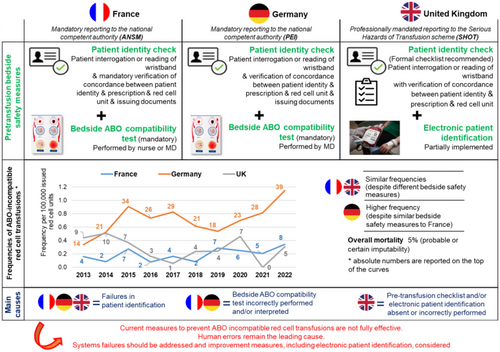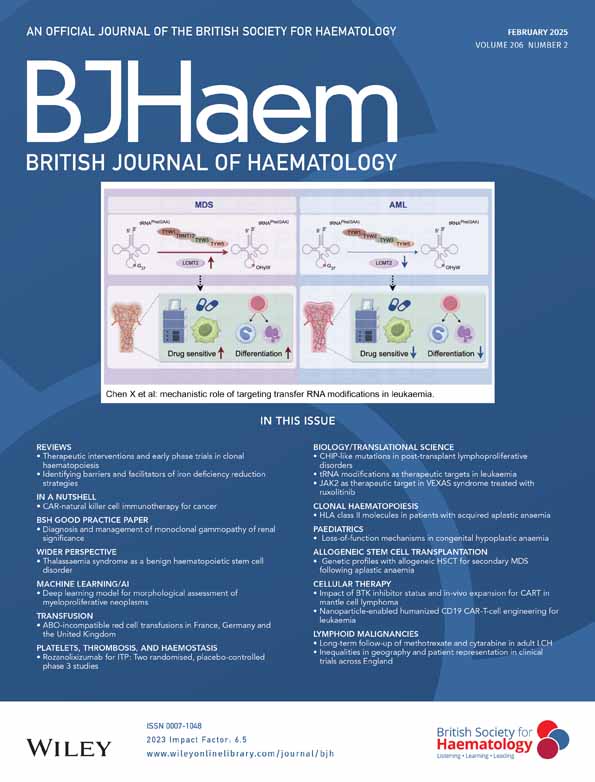Frequencies and causes of ABO-incompatible red cell transfusions in France, Germany and the United Kingdom
Shruthi Narayan, Pierre Tiberghien, and Richard Schäfer contributed equally to this work.
Summary
Prevention of ABO-incompatible red cell transfusions (ABO-it) requires accurate donor and patient identification and correct application of processes for transfusion safety. In France and Germany, a bedside identity check and ABO compatibility test are performed. In the UK, an identity check, often structured as a bedside checklist, is performed with or without electronic patient identification (ePID). To compare the efficacy of ABO-it bedside preventive measures, frequencies and causes of ABO-it between 2013 and 2022 were investigated in all three countries. Despite differing bedside safety measures, similar average ABO-it frequencies were observed in France (0.19 [SD:0.09]/100 000 issued red cell units) and in the UK (0.28 [SD:0.17]/100 000), whereas a higher frequency (0.71 [SD:0.23]/100 000) was observed in Germany which has similar bedside safety measures to France. ABO-it resulted mostly from erroneous patient identification and transfusion of a red cell unit intended for another patient. In France and Germany, all ABO-it were associated with incorrectly performed identity check and ABO compatibility test. In the UK, most ABO-it were associated with incorrectly performed identity checks. Current measures to prevent ABO-it are not fully effective. Further development and implementation of effective patient identification systems, including electronic information systems, across the entire transfusion process, should be considered.
Graphical Abstract
In France, Germany and the United Kingdom, different bedside safety measures are implemented to prevent ABO-incompatible red cell transfusion (ABO-it). In France and Germany, in addition to the identity check, a bedside ABO compatibility test is mandatory. In the UK, the identity check is performed with or without electronic patient identification (ePID). From 2013 to 2022, similar ABO-it frequencies were observed in France and in the UK despite different bedside safety measures, whereas a higher frequency was reported for Germany in spite of similar bedside safety policies as in France. In the three countries, ABO-it mainly resulted from failures in bedside pretransfusion safety policies, erroneous patient identification and transfusion of a red cell unit intended for another patient. Current safety measures do not fully prevent ABO-it with human errors remaining the leading cause. Further implementation of effective ePID systems across the entire transfusion process applied by well-trained personnel should be considered.
CONFLICT OF INTEREST STATEMENT
Aline Mirrione-Savin, Pierre Tiberghien and Caroline Bacquet are employed by EFS, the French transfusion public service in charge of blood donation and blood component manufacturing, testing and issuing in France.
Open Research
DATA AVAILABILITY STATEMENT
Data can be made available via the corresponding author.





